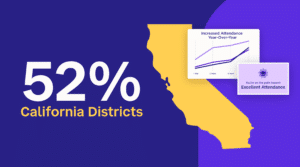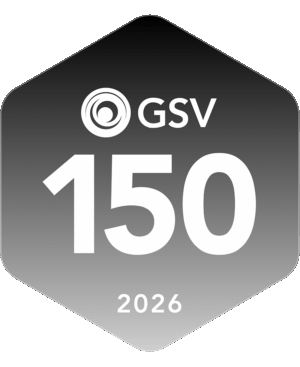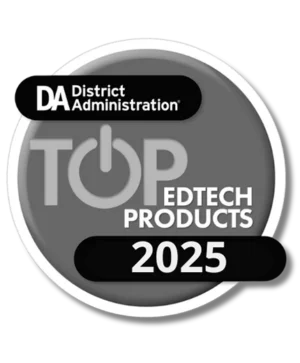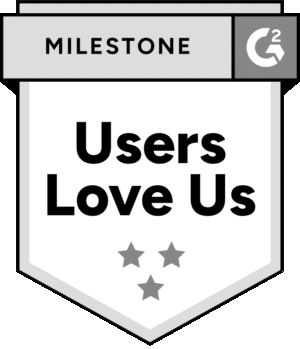Featured Resource
Why Over Half of California School Districts Trust SchoolStatus
Read More >Join Mission: Attendance to reduce chronic absenteeism in 2025-26! >> Learn How <<





Welcome back to Coaching Roundup! Every month we like to focus on one specific topic and this month we’re focused on new or transitioning instructional coaches. Enjoy!
Joy DeFors passes along some of her practiced techniques for establishing trust with your peers while transitioning from teacher to coach (specifically those within the same building).
“Just like any relationship in life, the partnership between instructional coach and classroom teacher takes work. Deliberate and considerate attention to relationship building strengthens rapport between coaches and teachers, ultimately leading to a greater impact on student learning and achievement.”
Lily Jones relays advice from five instructional coaches on how to successfully kickstart your coaching career.
“Though you may be stepping into a new position, you have a wealth of experience to draw from. . . . You are still a teacher. The only thing that’s changed is that now you are teaching teachers instead of students. The same strategies and approaches you used with students can be helpful when working with teachers. As with classroom teaching, it’s important to try ideas, gather feedback, and adjust your approach as needed. It’s a constant learning process!”
Tonya Moody shares a handful of her great techniques for new or transitioning instructional coaches to start their journey on the right foot.
“Forming positive relationships with your teachers lies at the heart of great instructional coaching. Creating a plan for forming relationships is most important because they don’t magically form from just being in the same room. Relationships require thoughtful steps to make them happen. Learning names and intentionally getting to know someone personally is key, but so is making sure you’re visible and excited to interact with your colleagues daily”
Maggie Colicchio dives into her transition from being coached as a teacher to becoming an instructional coach herself.
“Many districts and schools do not define what they expect from instructional coaches. Coaches go into their jobs completely blind, and are often given roles and responsibilities that are not related to coaching. . . . The best way to combat this issue? Partnerships. The role of a coach starts by establishing trust, expectations, and boundaries—first with your principal, then with the rest of your coachees.”
Elena Aguilar offers advice she’s collected over her coaching career for first-time coaches.
“Be insatiably, humbly curious. Learn to ask nonjudgmental questions that create expansion in someone else’s thinking and imagination. Learn to ask nonjudgmental questions about assumptions, biases, interpretation, and opinion. Know that you will learn a tremendous amount as an instructional coach about things you don’t yet know that you don’t know. Be curious.”
Annie Frost reflects on her dual role as a teacher and coach as well as their similarities and differences.
“Goal setting is equally important in coaching. Sitting down with teachers and hearing what they want to accomplish helps frame the work that you do together. While you might have some goals in mind, make sure that you don’t lose sight of the goals that teachers have as well. This also goes back to that relationship that is so important and also building trust.”
Chrissy Beltran serves up some insights for new coaches beginning their journey (or reminders for experienced coaches).
“Your principal (or possibly your district) has an idea of what your job is. If you have a different idea of what your job is, and you continue doing that job for any length of time, one of you will end up being pretty unhappy. When you apply for any instructional coaching position, it’s necessary to ask the principal, ‘What are the three most important things I need to spend my time on? Where will most of my time be spent?'”
 SchoolStatusSchoolStatus gives educators the clarity and tools they need to get students to class and keep them moving ahead. Through our integrated suite of data-driven products, we help districts spot attendance patterns early, reach families in ways that work for them, and support teacher growth with meaningful feedback. Our solutions include automated attendance interventions, multi-channel family communications in 130+ languages, educator development and coaching, streamlined digital workflows, and engaging school websites. Serving over 22 million students across thousands of districts in all 50 states, SchoolStatus helps teachers and staff see what matters, act with speed, and stay focused on students.
SchoolStatusSchoolStatus gives educators the clarity and tools they need to get students to class and keep them moving ahead. Through our integrated suite of data-driven products, we help districts spot attendance patterns early, reach families in ways that work for them, and support teacher growth with meaningful feedback. Our solutions include automated attendance interventions, multi-channel family communications in 130+ languages, educator development and coaching, streamlined digital workflows, and engaging school websites. Serving over 22 million students across thousands of districts in all 50 states, SchoolStatus helps teachers and staff see what matters, act with speed, and stay focused on students.
News, articles, and tips for meeting your district’s goals—delivered to your inbox.







Ready to learn more about our suite of solutions?
